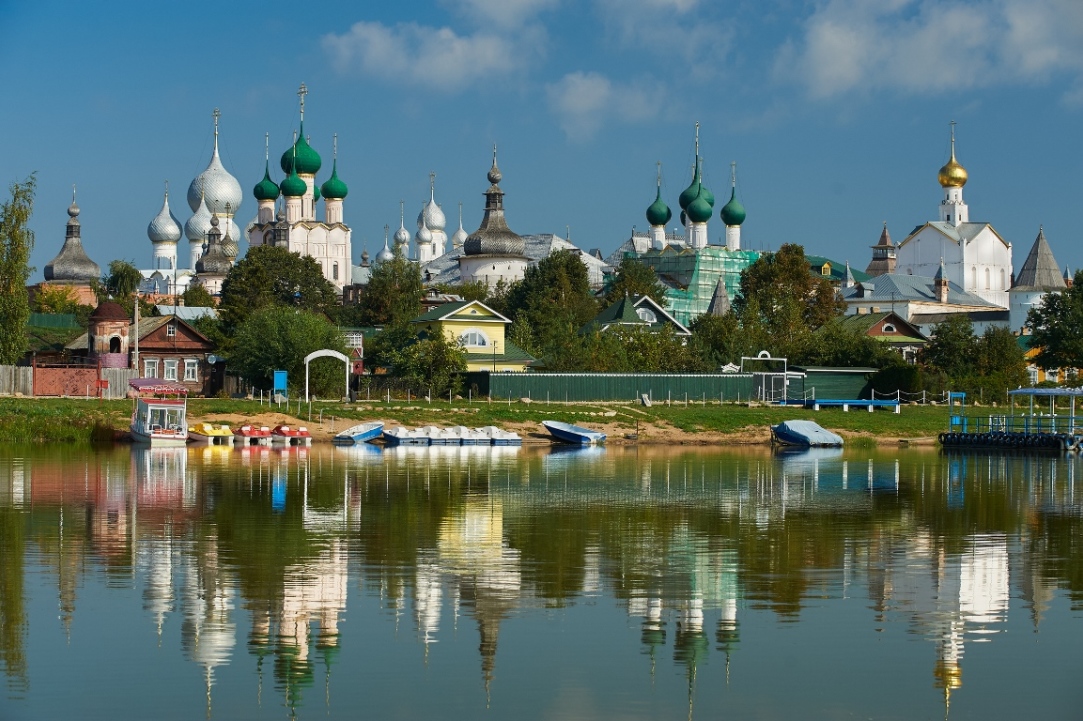
Values Evolution: East Still to Catch Up with West
Since World War II, people in many countries have enjoyed a better sense of wellbeing, which has resulted in survival values giving way to emancipation values. Threats no longer lurk at every turn, and each new generation sees more opportunities and fewer barriers to empowerment. The book Freedom Rising by LCCR Chief Research Fellow Christian Welzel offers some ideas on how widespread this process is, whether it is irreversible and where human emancipation can lead.

What Russians Tell Tourists about their Towns
Residents of provincial Russian towns put it differently when talking about their towns to Muscovites, foreigners, and tourists from other Russian regions. Such an ‘individual approach’ is spontaneous and may be useful in creating city tourist brands, concluded Nadezhda Radina as a result of her experiment, which involved over 800 residents of Russian provinces.

Can Nicotine Help to Treat Schizophrenia?
Several studies have indicated that schizophrenic patients are likely to show high levels of nicotine dependence. Scientists from Higher School of Economics (HSE), Institut Pasteur, the CNRS, Inserm and the ENS employed a mouse model to elucidate how nicotine influences cells in the prefrontal cortex. They visualized how nicotine has a direct impact on the restoration of normal activity in nerve cells (neurons) involved in psychiatric disorders such as schizophrenia. These findings were published in a paper that appeared in the journal Nature Medicine.
HSE Students Analysed Moscow Parks’ Performance
What should Moscow parks be like – multi-functional public spaces or places where locals can go for a walk? What activities and infrastructure do parks lack and what should be changed in how they operate? HSE students tried to address these issues as they presented their ‘Park and Visitor’ survey on February 28, 2017, at Mosgorpark (Moscow city park authority).

Russians with Degrees: Where Are They Employed?
Russia has a problem with the under-utilisation of education. Almost 30% of employees with university degrees report no connection whatsoever between their training and current occupation, according to Elena Varshavskaya's paper 'Where and in what jobs highly educated Russians work.'
-%D0%BC%D0%BE%D0%B7%D0%B3%20%D0%B4%D0%BE%D1%84%D0%B0%D0%BC%D0%B8%D0%BD.jpg)
Alcoholism May Be Caused by Dynamical Dopamine Imbalance
Researchers from the Higher School of Economics, Ecole Normale Supérieure, Paris, Indiana University and the Russian Academy of Sciences Nizhny Novgorod Institute of Applied Physics have identified potential alcoholism mechanisms, associated with altered dopaminergic neuron response to complex dynamics of prefrontal cortex neurones affecting dopamine release.
Sberbank and HSE Institute of Education to Cooperate on Landmark 21st Century Skills Project
Sberbank’s Charity Foundation and the HSE Institute of Education have recently agreed to cooperate on a milestone 21st century skills research and development project. With multiple representatives of the academic and business communities, among others, this collaborative endeavour aims to deliver visible improvements to Russia’s education system. In particular, the project will involve devising a clear approach to identifying, evaluating, and deploying core next-generation skills and competencies that consider national socioeconomic and educational contexts alongside global best practice.
.jpg)
Which Crimes Do Russian Police Investigate?
In deciding whether or not they will register a particular incident or offence and whether they will investigate it according to the rules or in exchange for a bribe, Russian law enforcement officers tend to act from one of four different perspectives: state, departmental, commercial or professional, according to Elena Berdysheva's study 'Varying Worth of Crimes in the Eyes of Policemen in Russia'.
.jpg)
Motor Cortex Influences Word Comprehension
Researchers from HSE, Northumbria University, and Aarhus University have experimentally confirmed the hypothesis, whereby comprehension of a word’s meaning involves not only the ‘classic’ language brain centres but also the cortical regions responsible for the control of body muscles, such as hand movements. The resulting brain representations are, therefore, distributed across a network of locations involving both areas specialised for language processing and those responsible for the control of the associated action. The results have been published in the journal Neuropsychologia.
Who Studies Russian Science and How?
On February 8, Russian Science Day, the Higher School of Economics, along with the Russian Federal State Statistics Service (Rosstat) and the Ministry of Education and Science, released its annual statistical data book on the state of science, technology, and innovation. Below, the Director of the HSE Institute for Statistical Studies and Economics of Knowledge and HSE First Vice Rector Leonid Gokhberg discusses how research on science in Russia is advancing.

